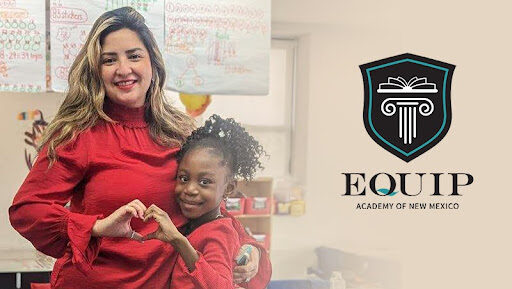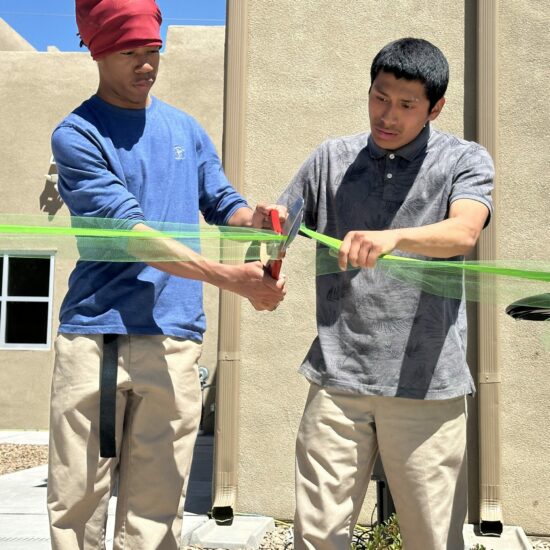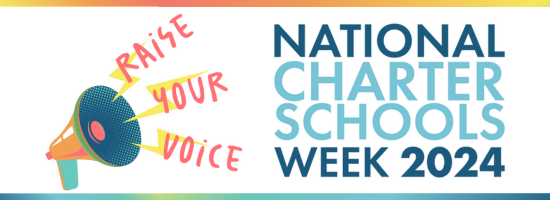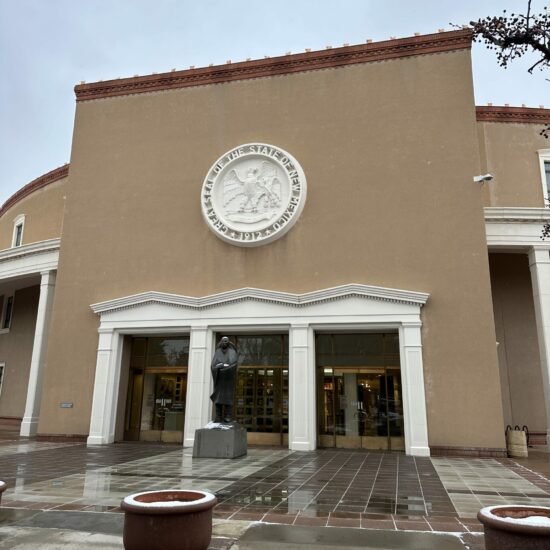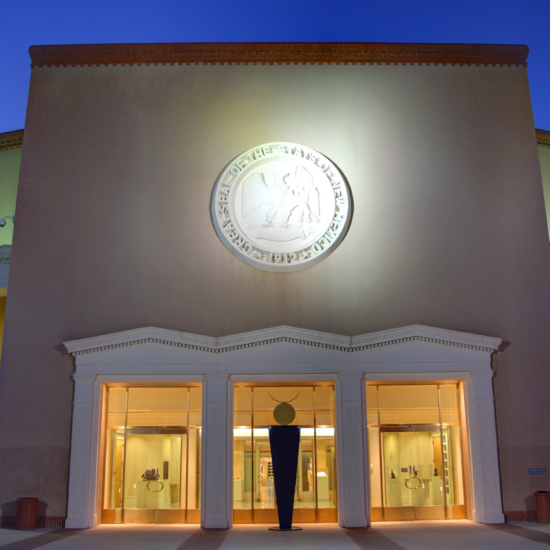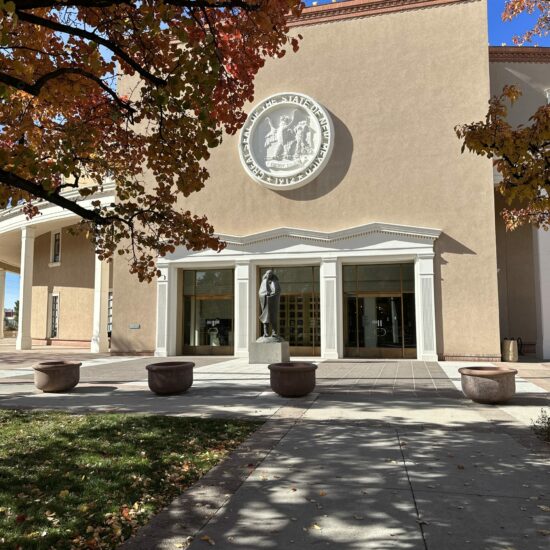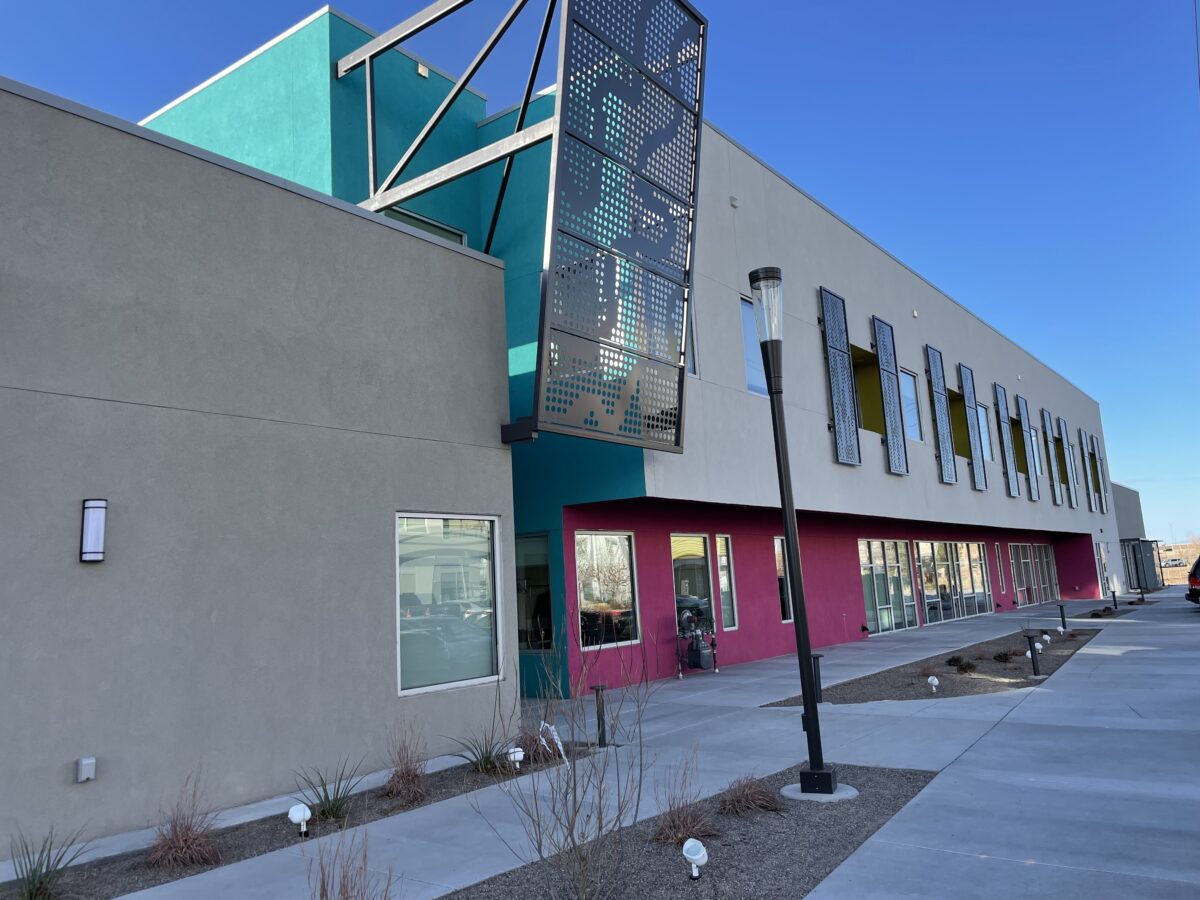
Theresa Archuleta, co-director of Albuquerque’s Tierra Adentro arts-focused charter middle and high school, says half-jokingly that to secure funding for the school’s beautiful new facility in Albuquerque’s Sawmill area, she had to “give up my firstborn child” as collateral.
While that’s clearly a tongue-in-cheek exaggeration, it points to an undeniable fact: When it comes to paying for buildings, New Mexico charter school boards and leaders often find themselves in an impossibly deep hole. Paying off facility debt cannibalizes funding for programs, often forcing schools to scale back ambitious curricular and programmatic offerings.
“If the administration and the board didn’t have to worry about financing the building, then yeah, the sky’s the limit,” Archuleta said in a recent interview. “But as it stands, you’re pulling the limited resources a charter school has and putting way too much toward paying for a facility.”
Archuleta said that her passion is education, not finance. Unfortunately, though, “all I do is the building financing. I feel I have very little time for instruction.”
Charter school educators and advocates hope that is about to change. Last year, they introduced state legislation to provide better facility funding for charter schools. But the 2021 Senate Bill 318 died in committee.
A similar bill is being introduced in the 2022 session, and Archuleta and her peers are ardently hoping it passes this time.
The bill would take several steps to ease the facility funding burden on charter schools:
It would create a revolving loan fund for charter schools. Charters could borrow from the fund to build a facility that meets their needs. As they pay those funds back, another charter school could use those funds for a new construction or renovation project.
It would ensure that public land and facilities not used by school districts would be offered to charter schools. This provision would be enforced by the Public Schools Facilities Authority.
The bill would also standardize what is currently a $700 per student lease assistance payment for charter schools. The amount of lease assistance charters currently receive is unpredictable because it is tied to square footage of instructional space in schools, as measured by the Public School Capital Outlay Council.
Finally, it would help charter schools get onto school district bond funding elections and distributions.
Matt Pahl, executive director of Public Charter Schools of New Mexico, said he is cautiously optimistic about the bill’s prospects for passage this session. “Nothing is a slam-dunk in the legislature, but we’re feeling good about it,” Pahl said.
“There’s a lot of work ahead to get this bill through, and a critical part of that is because of persistent misconceptions about charter schools. Even after 20 years of charter schools in New Mexico, people are still putting out misinformation that charter schools are private schools.”
Pahl said an added challenge is that this year’s legislative session lasts just 30 days, meaning that any bill faces an uphill challenge to work its way through the process of committee hearings, debates, and votes.
Archuleta said she is eager to do anything in her power to help the bill pass. Tierra Adentro has struggled with facilities challenges since its founding in 2010.
The school’s original location was in a former dialysis clinic near the University of New Mexico campus. Even though a previous charter school tenant had retrofitted the building, “it really wasn’t meant to be a school,” Archuleta said.
What made that original location even more challenging was that, as the school grew, it had to lease three satellite classrooms across busy University Boulevard from the main campus.
“It was a horrible situation,” Archuleta said. “Safety really became an issue, and even though we were working on the new building, it was still in the planning stages so we had to find another temporary facility.”
That turned out to be an old Keebler cookie factory that had been converted to a school by a previous charter tenant. Tierra Adentro initially intended to use that facility for two years, but as financing delays dragged on, the school remained there for several additional years.
After a few false starts that set construction back repeatedly, the school and the school, through its nonprofit foundation, secured $7.8 in financing from two Community Development Financial Institutions: The Clearing House, and the Charter Schools Development Corporation.
The school moved into its new, 3,500-square-foot facility last September. That’s double the space it had at the old cookie factory. That’s wonderful, Archuleta said, but the burden of paying off the building still weighs heavily on her.
Archuleta said the loans, currently locked in at a 6.5 percent interest rate, have to be refinanced in three years. Given recent inflationary trends, that’s a daunting prospect. Archuleta hopes to retire soon, and she wants to pay off the building before she leaves.
If the revolving loan fund and lease assistance payment provisions of the bill pass, Archuleta said, she will be that much closer to realizing her dream and sailing off into the sunset.
“Right now there are so many unknowns, which makes it so hard, you know?” Archuleta said.


